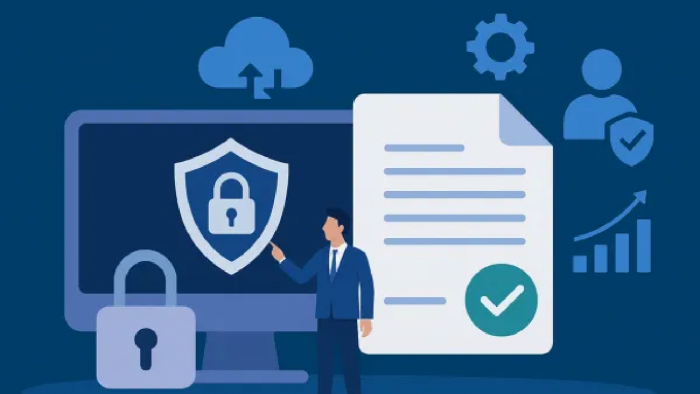Table of Content
Given the connected nature of the current business environment, password management security remains a cornerstone of data safety. Managed Service Providers (MSPs) have a crucial role in ensuring that businesses secure their digital landscape. This article will look at some basic MSP password management strategies and tools.
The Importance of Password Management

Passwords are the first line of defence in preventing unauthorised access. They safeguard sensitive information from possible threats. Left unchecked, businesses open themselves up to hacks and breaches that cost time and money while damaging their brand. Proper MSP password management can help you implement password strategies that will help mitigate these risks.
Benefits of a Good Password Manager
Here are the key benefits of a good password manager:
Strong Password Policies
Strict password policies are necessary. These policies determine the complexity, length, and number of passwords. MSPs help define guidelines that make user passwords hard for an attacker to guess. You should choose something with a combination of letters, some numbers, and symbols. Frequent changes to these policies ensure that security practices remain up to date.
Password Rotation and Expiry
Changing passwords regularly is a basic requirement. This minimizes the risk of a password being abused if it is ever compromised. Many MSPs implement a system that automatically reminds users to change their passwords every so often. The systems also impose expiration dates, compelling users to embrace new credentials.
Two-Factor Authentication (2FA)
Two-factor authentication helps with security. It will ask users to give two APIMs; they can enter an account before logging in. MSPs hope to integrate 2FA into the organization's systems and make unauthorized access even harder. The approach provides an increased level of security as it combines something the user knows and something the user owns.
Tools and Technologies
MSPs employ a range of technologies to make passwords more secure. They make the management process easier and increase security.
Password Managers
Password managers save and encrypt users' passwords. Generating complex passwords for different accounts eliminates the risk of weak or reused passwords. MSPs suggest password managers because they make life easy, allowing users to find their credentials from one secure place.
Single Sign-On (SSO) Solutions
Single sign-on (SSO) is a solution that enables users to use one set of login credentials (such as a name and password) to access multiple applications. This reduces password fatigue while improving security. For this reason, MSPs implement SSO solutions to offer a seamless experience without compromising security.
Audit and Monitoring Tools
Auditing and monitoring are key to spotting suspicious activities. Access patterns are tracked, and anomalies are detected. MSPs use the latest tools in this phase. Such tools automatically produce reports, enabling organizations to close vulnerabilities proactively and remain protected continuously.
Training and Awareness
One crucial factor is teaching users how to use passwords. MSPs conduct training sessions to increase awareness of best practices. In these sessions, participants learn about the importance of good password hygiene and how to identify phishing attempts. Users who understand potential risks can strengthen an organization's security culture.
Challenges in Password Management
Even if technology has advanced, password management always has its challenges. One big issue is human error. Many users find it difficult to recall complex passwords, which leads to unsafe password management, including writing passwords down. That is where MSPs come in, providing ongoing education and assistance.
Another challenge is striking a balance between convenience and security. Tight security means more protection, but it can also adversely impact the user experience. MSPs try to strike a balance between security and usability so that neither side loses essential functionality.
Conclusion
Password management must be appropriately implemented to secure digital spaces. MSPs are integral in enforcing strategies that safeguard sensitive data. When organizations understand the fundamentals of password management, they can strengthen their security posture and minimize the chances of unauthorized access. By implementing the proper tools, policies, and education, businesses no longer need to play a guessing game when it comes to password security.
Post Comment
Be the first to post comment!





